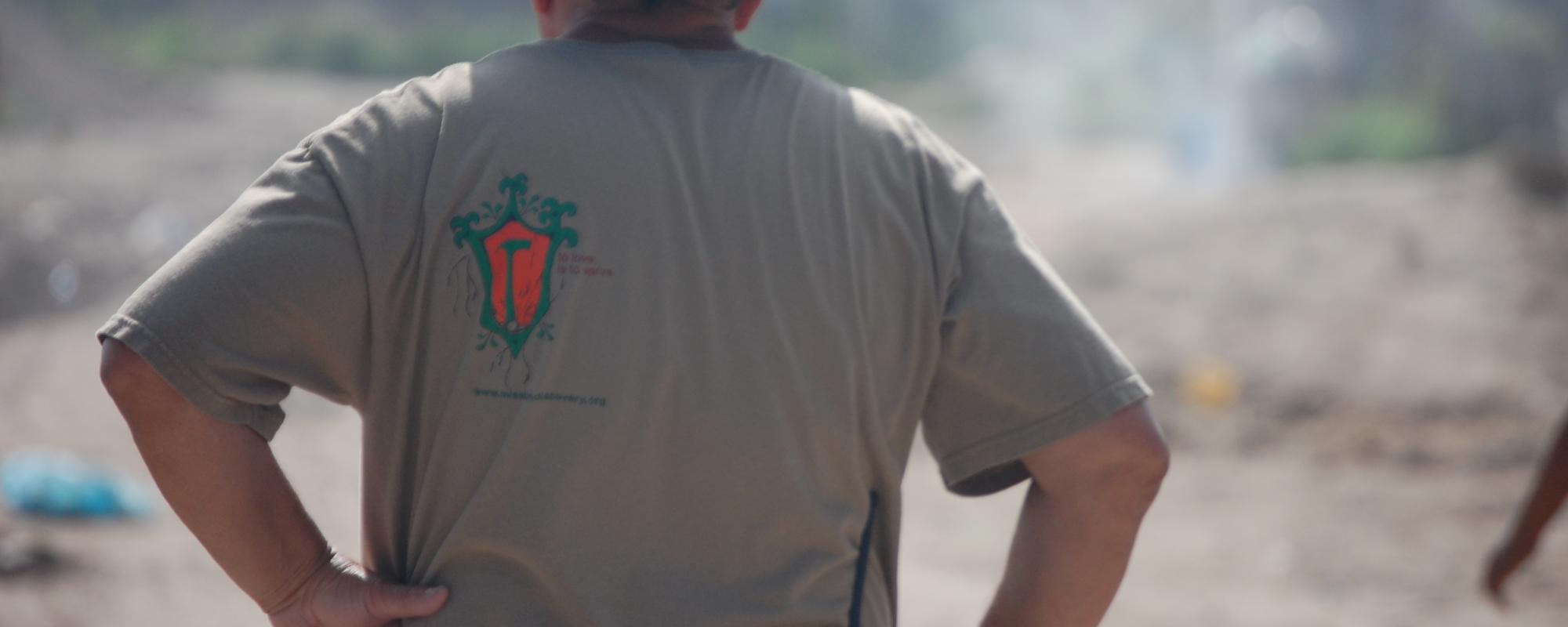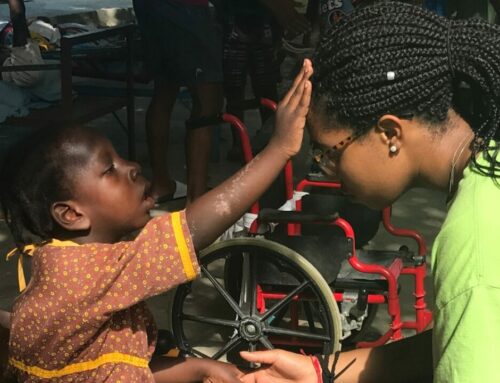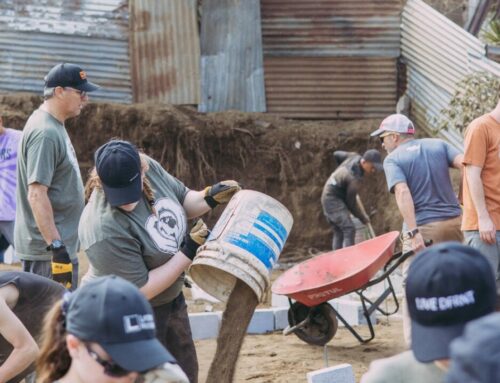Bill McDowell is my earthly consultant on poverty. Bill is the founder of Second Mile Development in Huntsville, Alabama. Bill and I worked together at Nashville Youth for Christ and has been a good teacher over the years.
Bill’s church and Bill were on a Mission Discovery mission trip in Reynosa, Mexico and I asked Bill to take a night and talk to the group of 160 senior high school students about poverty. He said, “There’s not much to say….they just don’t have money.” I told him I needed a little more than that and he delivered.
Bill first talked about a simple description of poverty, then why poverty may continue in a family or neighborhood and the importance of a team like ours being on the ground building houses (the work project that week), and some solutions that offered dignity in serving the poor.
Bills contrasted the poor and those that he would consider “not poor.” Bill explained, “Most everyone in this room has a safety net. Should something happen to us financially we have family and friends that eventually come to our rescue. In contrast, the poor have no such safety net.” Because of this, Bill continued, “Most poverty is generational.”
Then Bill unfolded a behavioral study done at a university using dogs. (Hang with the story, it’s troubling for animal lovers like me and telling)
Two dogs were placed in a cage and the door locked. The dogs were allowed to get comfortable walking around the cage, then a non-lethal DC low voltage charge was place on the cage and the dogs had the reaction you would expect. They yelped, urinated and ran in circles around the cage. The charge was released and the dogs would eventually return to normal behavior. After the passage of time the procedure was repeated with the same results. But eventually, when the charge was placed on the cage the dogs would simply freeze, make no sound and then act normally immediately after the charge was released.
A third dog was introduced to the cage and the procedure repeated. Two dogs froze and the newly introduced dog yelped, circled and urinated. Two more charges were placed on the cage with the same results, but during the second charge the door of the cage was opened and the newly introduced dog ran out of the cage. The other two dogs remained in the cage, with the door open! Two more charges were placed on the cage with both dogs freezing in their tracks before one dog cautiously placed a foot out the door then fully exited. The other dog took one more charge before exiting.
The researchers called the behavior of the dogs that slowly exited, “conditioned hopelessness.” Without the model of the third dog saying by his actions, “this is not right guys!” they may have stayed longer.
Bill continued his talk by saying simply that, “Jesus had come to this world to say there is a way out. Our God chose poverty and still found the richness of life. He took those who were considered “throw aways’” and said, “You are valuable.” And his purpose for you being here this week it to be Jesus to the people you have met.”
Bill’s ministry in Huntsville, Alabama offers employment for the poor at a clothing store where they can either earn credits for purchasing clothing or money. The store is called Pride for Parents.
He empowers parents in impoverished neighborhoods to effectively lead PTA groups and thus influence school administrations to offer the best possible education for their children. Childcare is difficult for the poor to afford, so Bill offers a daycare where parents pay a small fee for their kids to be well cared for while they are at work. Bill says, “There is dignity for the poor in paying something, rather than receiving it for free.”
Each new school year Bill gets the list of required school supplies from the schools in Terry Heights and raises money to build “Kid Kits” full of those supplies that low income families can purchase for 3 or 4 dollars instead of the 25 or 30 dollars it would normally cost.
Each of our Mission Discovery projects asks for an investment from the poor. Some teams have thought we were being hard on the poor by asking them to take off from work to help build and paint their house. After all, “we were here to serve.” However there must be a place for every one of us, when we are at our lowest, to be a part of the solution of the help we receive.
I have a friend who is a counselor and he says that he often receives calls from a wife who wants to make a counseling appointment for her husband. My friend won’t book the appointment, he says, “Your husband must want help bad enough that he calls me. He’ll get better when he invests and a phone call is the first investment.”
It’s a big deal to take a day off work in Mexico. A factory worker makes $8.00 a day for a 12-hour shift and there is a line waiting for that job. At the end of the work week the resident will have a house that he can proudly say he and his family built with the help of a team from the U.S. There’s dignity in that and a first step in moving out of poverty.
I’d appreciate your comments below. Have a great day!





